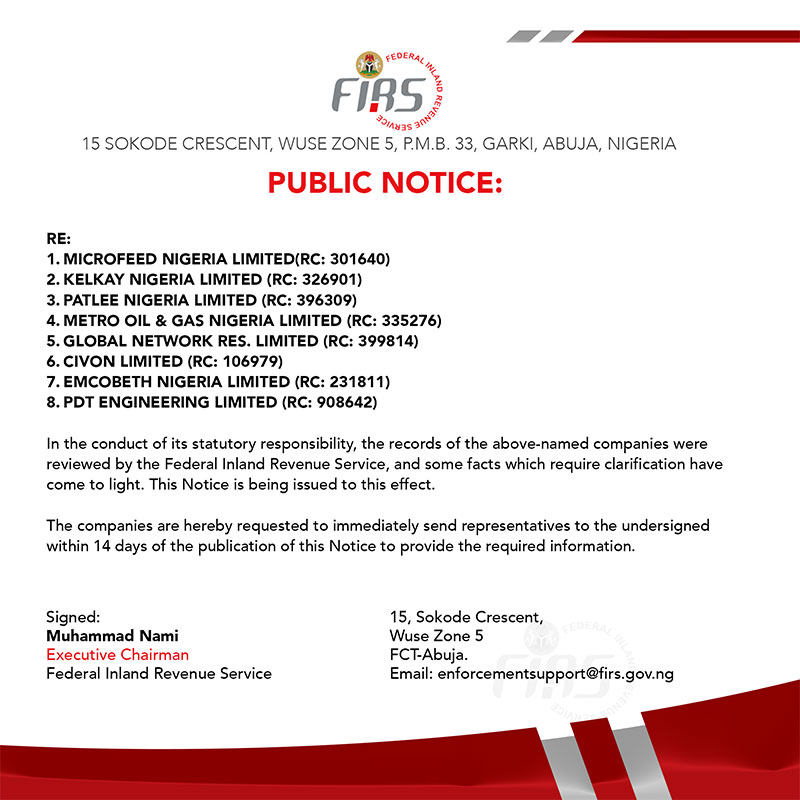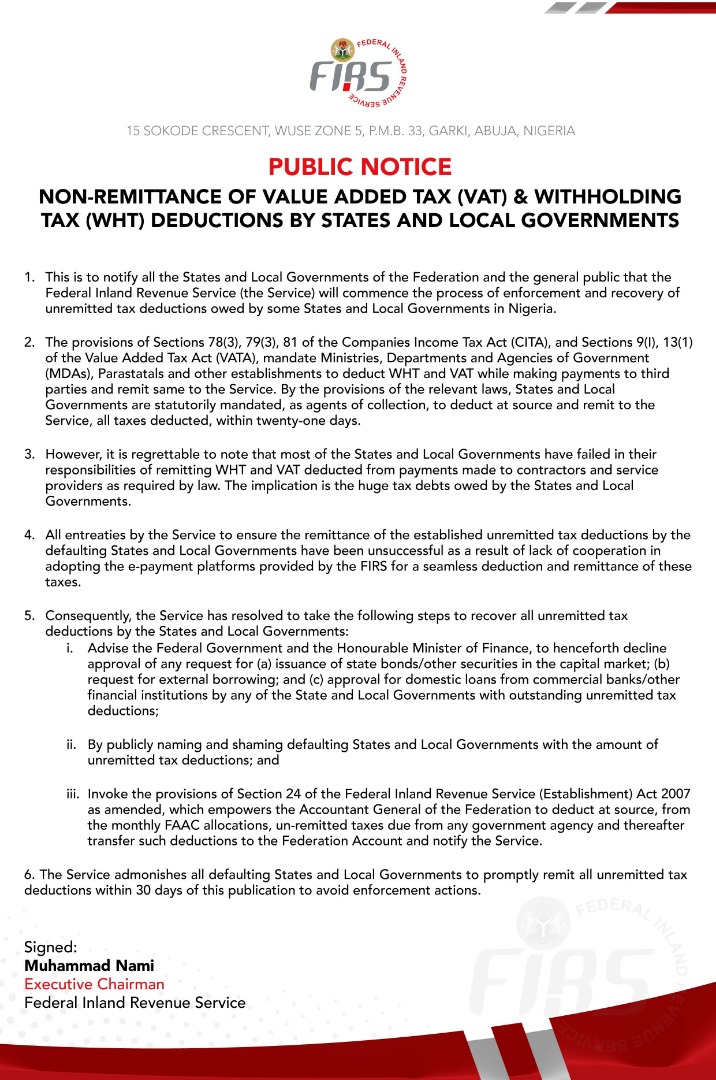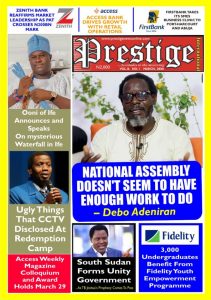
The Central Bank of Nigeria (CBN) yesterday hiked its Monetary Policy Rate (MPR) to 15.5 percent, the highest ever in 20 years.
The increase came at the end of its Monetary Policy Committee meeting, which started on Monday in Abuja.
CBN Governor Godwin Emefiele, who announced the new rate, said it was, among others, intended to rein in inflation, which now stands at 20.52 percent.
Members of the MPC also agreed at the meeting to raise the Monetary Policy Rate (MPR) to 15.5 percent; retain the asymmetric corridor at +100/-700 basis points around the MPR; increase the Cash Reserve Ratio (CRR) to a minimum of 32.5 percent, and retain the Liquidity Ratio at 30.0 percent.
Part of the implications of the measures is that the cost of borrowing will go up to reflect the new MPR of 15.5 percent and the minimum cash reserve that banks will keep with the CBN as liquidity will jump to 32.5 percent of their total deposits, as against the previous rate of 27.5 percent.
Emefiele also threatened that banks that fail to voluntarily fund their accounts by tomorrow to match the new CRR of 32.5 percent would be penalised.
The measures have, however, met with varied reactions.
The implication of the measures is the fear that raising the MPR will directly impact the fortunes of the manufacturing sector. The direct fallouts of the measures, among others, are loss of jobs and non -recruitment of additional workforce.
Experts also harped on the increasing disparity the CBN measures would cause on the foreign exchange rate.
One of the experts, Muda Yusuf of the Centre for the Promotion of Private Enterprise, described the developments as “a double whammy” for manufacturers.
He said: “We must forget that businesses are already grappling with so many problems, especially because of the high exchange rates, forex scarcity, currency depreciation, cost of diesel, and insecurity.
“Cost of operation will go up and inflation will still remain high if not higher. What guarantee does the CBN have that this increase in interest rate will curb inflation?
“Definitely, the CBN has not considered if we have borrowed money from the banks to invest. So, it’s not good news at all that CRR increased to 32.5 percent.
“What it also means is that the increase will further tighten the financial system because 32.5 percent CRR is one of the highest in the world.
“It is going to affect what you call financial intermediation, which is the major function of banks.
“What the CBN should have done is to also reduce its own fiscal deficit financing. That’s an even bigger problem for liquidity. Is it not the CBN that is providing the ways and means it is almost N20 trillion now?
“Things like this have very serious implications for inflation. I think that it is essential that CBN addresses this because it is not within the domain of the commercial banks or the banking systems, but within the remit of the CBN and the fiscal authorities.
“CBN is talking as if it is only CBN tools that can solve the problem of inflation whereas it is just causing unnecessary problems for investors who are indebted to the banks and to those who want to borrow money.”
But Emefiele, who stressed CBN’s resolve to implement the measures, said: “Whether you raise the rate or not, what will happen is that consumption and investment will be affected because the purchasing power of the consumer will derail or completely dissipate.
“You don’t have a choice but to raise rates. This is the best option at this time. We believe it will rein inflation.
“As long as we see inflation going upward, MPC cannot give any assurance that we will not continue to raise rates because we’ve seen rates move up very aggressively. He added: “The MPC needed to move in aggressively to ensure what can be done to rein in inflation. I cannot assure you that we will not raise the rate as long as inflation continues to trend upward.
“The easiest way to tame inflationary pressure is to raise the interest rate. This is the right way to go. You have to try as much as possible to raise your rates to a level that is equal or higher than inflation.”
Emefiele also admitted that the new rate may retard growth and make the cost of borrowing more expensive.
He lamented that with the inflation rate higher than the interest rate, what Nigeria was grappling with now was a case of negative interest, “which in itself is a disincentive to investment.
The CBN boss argued that to check the development, “it is imperative that interest rate be raised to rein in inflation.”
With regards to the 32.5 percent minimum Cash Reserve Ratio, Emefiele said: ”what it means is that we expect that all the banks in Nigeria must fund their accounts by Thursday (in 48 hours) because we will debit them for CRR.
“We will take their CRR to a minimum of 32.5 percent, which means we are going to take liquidity out of their vaults by Thursday. If any bank fails to meet up with this expectation, the decision of the MPC is that we may need to preclude those banks from the foreign exchange market on Friday and onward until they meet this 32.5 percent.”
Emefiele pointed out that the measure “is meant to underscore the fact that this very aggressive decision to rein inflation must yield result.
He said: “We do not want to face Nigerians in the next few months and begin to take the blame for not being able to rein in inflation in spite of all the rates we have raised.
“So, we have decided to adopt a two-pronged approach; increase MPR and CRR going up because we must mop liquidity effectively out of the vaults of the banks.”
Asked when inflation would decelerate, Emefiele said: “Our view is that the last period should be within the next two to three months. This is September, and as we begin to get into October, November, and December, we should begin to see the rates begin to decelerate.
“They will make it possible to achieve this because we believe that with liquidity out, it will constrain using the money for speculative purposes because we are not going to sit down and allow people go into their bank accounts and take naira to speculate against the currency. We will not allow it.
“We will take the monies out of the vaults of the banks so that speculative use of naira can completely be tamed in the economy.”
Emefiele, who also noted that “available data on key macroeconomic variables indicate that output growth will continue for the rest of 2022,” admitted that it would be “at a much-subdued pace.”
He also listed that some of the domestic shocks to the economy.
They include the high level of insecurity currently disrupting the free flow of economic activities; heightened sovereign risk as the 2023 general elections approach; continued upward pressure on inflation, driven by exchange rate pressures, amongst other domestic factors.
Emefiele added: “In addition, domestic price development is expected to maintain the current upward trend in light of the build-up of increased spending and demand for money, as the 2023 general elections approach. Accordingly, the Nigerian economy is forecast to grow in 2022 by 3.52 percent (CBN), 4.20 percent (FGN), and 3.40 percent (IMF),” the CBN governor said.
On the performance of the eNaira, Emefiele said the digital currency “has almost hit the one million mark on download.
He added: “So far, 905,558 have downloaded the App out of which, 282,600 are currently active. So far, counts of transactions have exceeded 1.49 million worth N3.484 billion.”
Emefiele also said the Bilateral Air Services Agreements (BASA) never made it compulsory for CBN to provide FX for repatriation of foreign airlines income, adding that they should freely obtain such FX from the Exporters and importers’ Window through their banks. The CBN would continue to treat airlines with priority and would clear the backlog.”






























